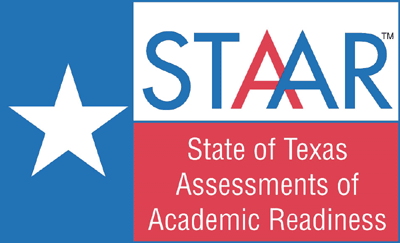In high school, the value of our knowledge was measured by the way we answered generalized multiple choice questions about certain topics we had learned over the years. Standardized testing came in many forms: TAKS, STAAR, ACT and SAT. These tests determined our future.
Recently, Texas Governor Greg Abbott signed Senate Bill 149 which reduced the requirements for Texas high school students to graduate. According to the bill, students will only need to pass three of the five exit STAAR exams to graduate. Abbott stated, "While it is critical that the state appropriately holds public schools and districts accountable for delivering the best possible education, we must protect Texas students from being penalized as a result of evolving test standards."
Initially, my reaction was: "This has to be the stupidest thing that has ever been signed into law. This reduces the value of a high school diploma and makes the Texas public education system look like a complete joke." However, after looking into it further, I realized that students who don't pass all five exams now have a reduced chance of entering the military or finding a career, as it means they can't graduate from high school. Not all of us can be professional test-takers and that shouldn't discourage people from getting a high school diploma and having a chance at life. I also believe that standardized testing, especially the kind in Texas public education, is a waste of time.
Before the STAAR exams, there were TAKS exams, which never increased in difficulty from middle school to high school. The tests were a waste of time. The material hardly tested what students had learned in the classroom, and it was hard to fail them. Students were given full school days to complete the tests, so when they finished them within an hour, they sat in class watching movies all day for a week straight. While the STAAR exams are supposed to be more specialized and difficult, they serve the same purpose and are still a form of standardized testing that takes away large amounts of classroom time each year.
Florida Governor Rick Scott signed legislation earlier this year reducing the amount of standardized testing in the Sunshine State. He passed an executive order which abolished the required 11th grade English examination and then made final examinations for classes optional. Scott's legislation was a response to complaints that students spend too much time taking tests, when they could be putting that time towards learning. With this new legislation, teachers are held more accountable for their students' knowledge because it won't be measured by the government's standardized testing.
In a way, standardized testing shows that the legislature doesn't trust the teachers to teach valuable knowledge in the classroom. It also limits the teachers to material that is only for these tests, and if their students don't perform as well as planned, they feel like they haven't done their job. Why does the government have to decide what students HAVE to know? There is also absolutely no way to accurately measure the intelligence of students across the state. Teachers teach many different subjects in different order and at a variety of difficulty levels. Many have said that the STAAR exams are too difficult and have proven to prevent students from progressing to the next level. Others say that the STAAR exams are actually too easy and a waste of time.
I only took two STAAR exams in high school, science and social studies. At the time, the education system was just testing the new STAAR exams out and comparing them to the TAKS tests. The exams didn't count. Social studies was easy to me, but the science exam was more challenging. The science exam contained mostly physics material I hadn't learned yet, mixed in with random biology and chemistry questions I knew very well. My score on the science exam was not as high as expected, yet, science was my favorite subject. Currently, I go to the University of Texas at Austin, and guess what my major is? Science. My performance in science wasn't even remotely measured by that exam.
While Abbott reducing the requirements to receive a high school diploma may seem irrational at first, I see it as a step in the right direction. I hope the direction takes the Texas public education system to a future where there are no standardized tests required to graduate and the curriculum is completely in the hands of the teachers who were trained to do their jobs. The teachers, the people who personally know the students and watch their knowledge grow, should be the ones deciding who gets to graduate, not the politicians in office. The teachers should be writing the tests according to what they say is important to know.
The cost of these standardized tests are countless hours that could have been spent in the classroom learning something new. Even though standardized testing is a nice break for teachers for a couple of days, it also belittles their abilities. Those days can be used so science teachers can talk about interesting new research, history teachers can teach more current events, math teachers can create math games, English teachers can encourage free-writing without a prompt and language teachers can encourage more conversation out of our English comfort zone.
Intelligence shouldn't be measured by the filling of a bubble with a No. 2 pencil. It should be measured by the ones we share it with.





















